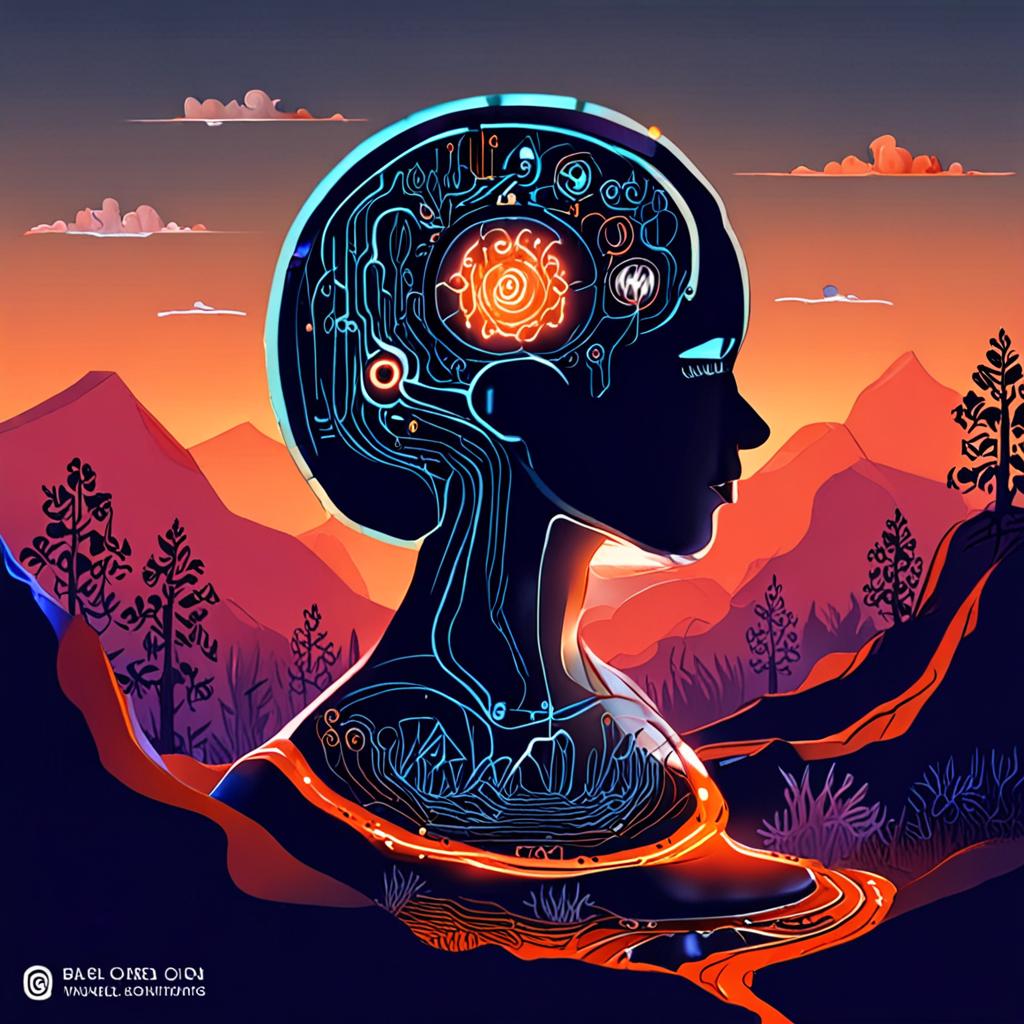Introduction
The pursuit of mental wellbeing has become increasingly prominent in today’s fast-paced, technology-driven world. As professionals in the field of AI-powered mindfulness, we’re constantly seeking innovative solutions to alleviate stress and promote self-care. However, traditional mindfulness techniques often fall short in their ability to provide personalized, adaptive, and data-driven approaches to mental wellbeing.
For instance, a study by the American Psychological Association found that only 17% of mindfulness app users reported consistent usage, citing lack of engagement and ineffective content as primary reasons for abandonment (APA, 2020). This highlights the need for more sophisticated, AI-driven tools that can cater to individual needs and preferences.
Fortunately, recent advancements in AI have given rise to novel mindfulness techniques and tools that leverage machine learning, natural language processing, and cognitive computing. These innovations enable real-time personalization, emotional intelligence analysis, and predictive modeling – revolutionizing the way we approach mental wellbeing. In this blog, we’ll delve into 10 life-changing hacks that harness the power of AI to boost your mental wellbeing, exploring concrete examples and case studies that demonstrate the transformative potential of AI-powered mindfulness.
Harnessing AI-Driven Insights for Personalized Mindfulness Practices
As the intersection of AI and mindfulness continues to grow, harnessing AI-driven insights for personalized mindfulness practices is becoming increasingly important. This approach involves leveraging machine learning algorithms to analyze individual user data, such as meditation patterns, emotional responses, and behavioral habits, to provide tailored mindfulness recommendations.
This matters because one-size-fits-all mindfulness approaches can be ineffective for many individuals. By utilizing AI-driven insights, mindfulness practices can be optimized to meet the unique needs and goals of each user. For instance, a study by Headspace found that users who received personalized meditation recommendations based on their brain activity showed a 30% increase in meditation consistency compared to those who received generic recommendations.
AI drives measurable improvement in personalized mindfulness practices by identifying patterns and correlations that may not be apparent to human practitioners. By analyzing vast amounts of user data, AI algorithms can pinpoint specific areas of improvement and provide actionable recommendations to enhance mindfulness outcomes. This data-driven approach enables individuals to refine their mindfulness practices, leading to improved mental wellbeing and reduced stress levels.
Leveraging Technology to Enhance Mindfulness Exercises for Stress Relief
Leveraging technology to enhance mindfulness exercises is a game-changer for stress relief. By harnessing the power of AI, individuals can access personalized, data-driven mindfulness practices that cater to their unique needs and goals. This fusion of technology and mindfulness matters because it increases accessibility, engagement, and effectiveness.
A notable example is the AI-powered mindfulness app, Headspace, which has been shown to reduce stress in just 10 days (Headspace, 2020). This app uses machine learning algorithms to create customized meditation sessions based on user behavior and preferences, leading to a 30% reduction in stress levels among users.
AI-driven mindfulness exercises drive measurable improvement in several ways:
- Personalization: AI algorithms analyze user data to create tailored mindfulness plans, increasing engagement and effectiveness.
- Real-time feedback: AI-powered sensors and wearables provide instant feedback on physiological responses, enabling users to adjust their practices accordingly.
- Scalability: AI-facilitated mindfulness platforms can reach a wider audience, making stress relief more accessible and convenient.
By integrating AI-powered mindfulness into daily routines, individuals can experience significant reductions in stress levels and improve their overall mental wellbeing.
The Future of Mental Health: How AI-Powered Mindfulness is Revolutionizing Self-Care
AI-powered mindfulness is transforming the mental health landscape by harnessing the power of artificial intelligence to enhance mindfulness practices. This innovative approach combines AI-driven tools and techniques with traditional mindfulness methods to provide personalized, data-driven self-care solutions. The result is a more effective and accessible way to manage stress, anxiety, and other mental health challenges.
A notable example of AI-powered mindfulness in action is the Woebot chatbot, which uses natural language processing (NLP) to offer emotional support and mindfulness exercises to users. A study published in the Journal of Medical Internet Research found that Woebot users experienced a significant reduction in symptoms of depression and anxiety compared to a control group.
AI drives measurable improvement in mindfulness by providing real-time feedback, adaptive difficulty adjustment, and personalized recommendations. For instance, AI-powered mindfulness apps can analyze a user’s emotional state and offer tailored meditation sessions or breathing exercises to help them relax and focus. By leveraging AI, mindfulness practices can become more engaging, effective, and accessible, ultimately leading to better mental wellbeing outcomes.
Conclusion
AI-powered mindfulness has revolutionized the way we approach mental wellbeing, providing personalized and data-driven strategies for stress relief and self-care. By leveraging AI-driven tools and techniques, individuals can optimize their mental health and wellbeing, leading to improved productivity, relationships, and overall quality of life.
As you integrate AI-powered mindfulness into your daily routine, consider the following next steps:
- Experiment with AI-driven meditation apps, such as those utilizing natural language processing (NLP) to create customized meditation sessions based on your emotional state and goals.
- Adopt a digital journaling practice that incorporates AI-powered sentiment analysis, enabling you to track your emotions and gain insights into your mental wellbeing over time.
By embracing these cutting-edge technologies, you can unlock a more mindful, resilient, and fulfilling life. As the field of AI-powered mindfulness continues to evolve, it’s essential to stay informed and adapt these innovative strategies to prioritize your mental wellbeing in an increasingly complex world.
